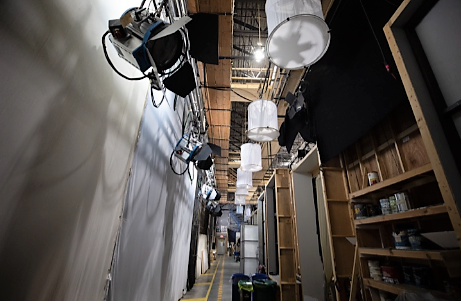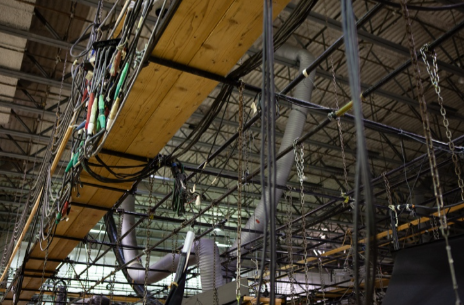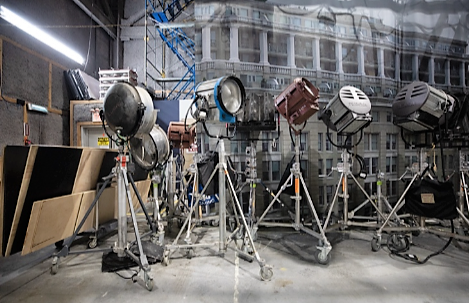Industry Job Focus | What’s a Cinematographer?
/As one of the premier studio production companies in New York, Broadway Stages works to meet the growing needs of the film and TV industry while also focusing on the needs of our community. We provide the industry with a soundstage or location where they shoot their scenes, but they also need a skilled and experienced workforce. In this series, we look at the various jobs that make a production come to life. We hope it provides insight and encourages you to consider a career in the film and TV industry. This week, we answer the question: “What’s a Cinematographer?”
What is a Cinematographer?
In our previous blogs, we looked at the roles that the Gaffer, Key Grip, and Sound Designer play in managing the extensive lighting, equipment, and sound needs for a production. In this post, we look at the lead role responsible for bringing the lighting and camera elements together to visually tell a story in a TV or movie production -- the Cinematographer.
According to Studio Binder, the term cinematography is taken from the Greek for “writing with movement,” it is the creation of images you see on screen. A series of shots that form a cohesive narrative.
Also known as the Director of Photography or DP, the Cinematographer is responsible for key elements that determine how the production will come across on the screen, from choosing just the right camera and lens to use, and determining camera movement, to driving framing and lighting decisions for the scene. Let’s take a closer look at what this key role encompasses.
A Sight to Behold
The Cinematographer works closely with the Director to make their vision of the production comes to life on film. The Nashville Film Institute points out the importance of the Cinematographer’s involvement at the various stages of production, from pre-production, making sure they understand the Director’s vision and securing the right crew and equipment; to production, working closely with the lighting and camera crews, using various methods including framing, lighting, and more to get the right effects; and finally, post-production, making sure the integrity of the cinematography is retained. Read more about the duties of a Cinematographer at Master Class.
The skill of the Cinematographer can make or break a production, as the various techniques employed help to more richly highlight the subtleties of a story. Check out Studio Binder for examples such as camera placement – using a close-up shot of a person chewing while eating to visually illustrate that they are ill-mannered.
How Do I Become a Cinematographer?
As is the case with many roles in the industry, on-the-job experience through working various jobs can put you on the path to becoming a Cinematographer. This will also help you develop a network within the industry, which can be helpful as you develop your career and build your reputation. A film school degree is not required, however it can be helpful in learning the various elements of filmmaking, such as film and video production and directing. As with on-the-job experience, film school can also help you create a network of professionals that you can keep in touch with throughout your career. Whether you attend school or get on-the-job experience, be sure to learn technical skills such as light manipulation and knowledge of equipment. Read more about how to become a Cinematographer at Master Class. Read advice from professional Cinematographers at Careers in Film.
Learn about film and TV industry jobs, training, and more in the Broadway Stages’ Industry Resource Guide. Our guide provides information about industry-focused job posting sites; links to general recruiting sites; education and training programs; and state, city, and borough industry information.























